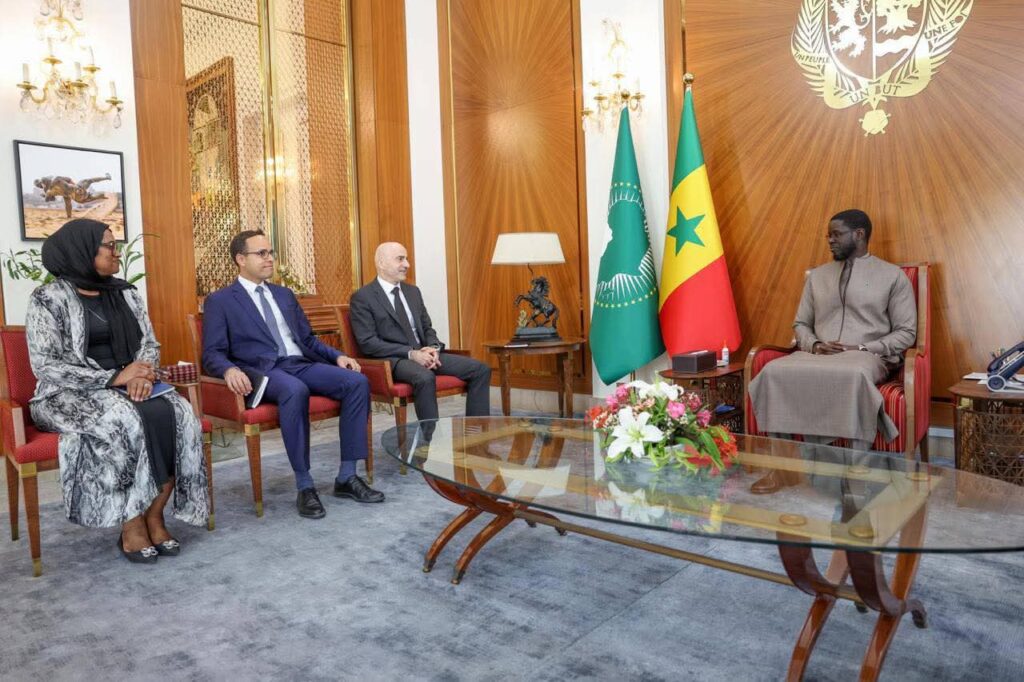
Across West Africa, nations are navigating a complex period of political transition, economic reform, and cultural reflection — from Benin’s mounting election fever to Guinea’s preparations for a crucial vote, from the Central Bank’s financial modernisation to a poignant ceremony honouring Africa’s forgotten soldiers.
In Benin, the opposition Democrats party is accelerating preparations for the 2026 presidential election. Journalist Cheick Donan revealed on October 7 that thirty-four figures have submitted applications to form the party’s presidential duo.
Among the contenders are veteran politicians Éric Houndété, Daniel Edah, Nouroudine Saka Saley, and Nourénou Atchadé.
The highly anticipated list, finalised after the October 4 deadline, marks a critical moment for the party, which is positioning itself as the main challenger in next year’s vote.
On the economic front, the Central Bank of West African States (BCEAO) is pushing forward with digital payment reforms.
The bank has updated its list of authorised providers for the Interoperability Platform and Instant Payment System (PI-SPI). Senegal leads the region with 15 licensed institutions, followed by Côte d’Ivoire with 13, Mali with 8, and Benin with 5.
The initiative aims to boost financial inclusion and facilitate faster, more efficient cross-border transactions.
Guinea is also entering a pivotal electoral phase.
The General Directorate of Elections announced on October 7 the creation of two commissions to oversee the December 28 presidential vote — one to handle candidate sponsorships and another to regulate campaign finances.
Director General Camara Djénabou Touré called for “effective and collaborative” participation from all political actors to ensure a transparent process.
In Senegal, emotion marked a solemn ceremony at the Thiaroye military cemetery, where Burkinabe Prime Minister Rimtalba Jean Emmanuel Ouédraogo honoured the memory of African soldiers massacred in 1944 for demanding their pay.
“The courage of these heroes who fell here in Thiaroye for simply demanding justice” should inspire “the continent’s march towards sovereignty and dignity,” he said.
The ceremony, held alongside the Invest in Senegal Forum, was attended by South African Vice President Paulus Shipokosa Mashatile, Nigerien Prime Minister Ali Lamine Zeine, and Senegalese Prime Minister Ousmane Sonko.
Meanwhile, Mali faces growing concerns over a jihadist threat to disrupt fuel supplies.
A commentary published on Maliweb described how the warning, initially dismissed, is now raising fears of price hikes.
Despite this, citizens are praised for their resilience, while authorities have established a hotline to report speculative practices.
Senegal’s economic prospects remain strong.
IMF resident representative Majdi Debbich confirmed in an interview with Le Soleil that Dakar “enjoys strong support within the institution.”
Talks are underway for a new support programme aimed at cutting the budget deficit to 3% of GDP while safeguarding growth, focusing on tax reforms, subsidy restructuring, and targeted public investment.
Finally, Niger is celebrating its cultural heritage with a spotlight on the rock art sites of Irhazer in the north.
The engravings, spanning from the Bovidian to Camel periods and including the southernmost Saharan site at Eknaouène with nearly 350 carvings, offer a window into millennia of artistic evolution and cultural continuity.
Together, these developments paint a portrait of a continent in motion — one that is learning from its past, adapting to present challenges, and shaping its own future.



